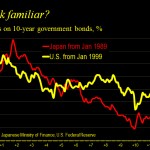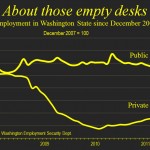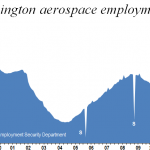
Has the U.S. caught the Japanese disease? Are we destined for growth so slow you can barely feel the pulse? There are, of course, enormous differences between the U.S. and Japan. They are roughly twice as indebted as we are in relation to the size of their economy. With [continue reading . . . ]

